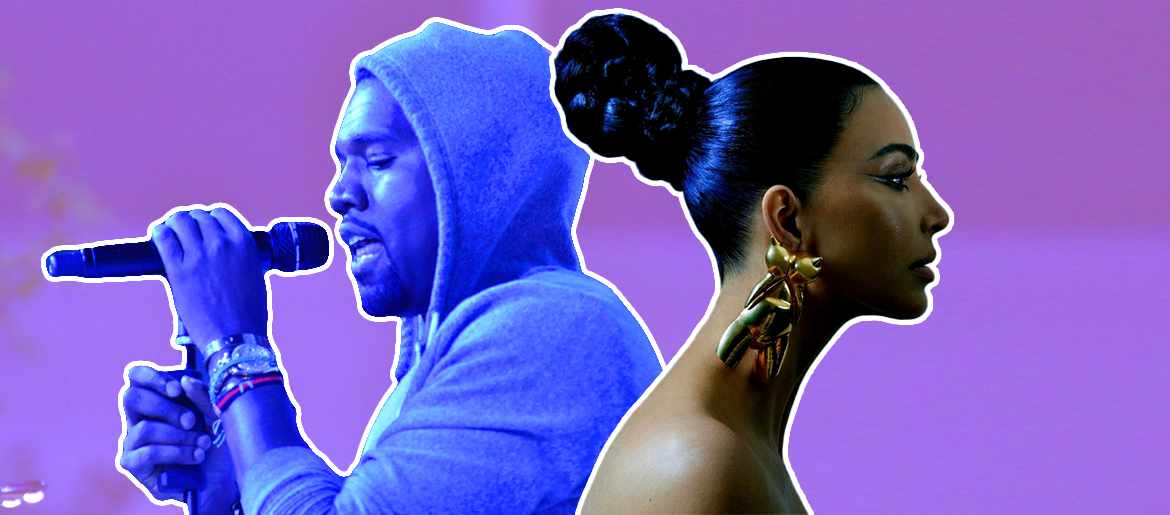 Here are the things that we know, but perhaps shouldn’t: In February 2021, Kim Kardashian filed for divorce from Kanye West; in November, Kim starts dating comedian Pete Davidson; Kanye soon buys the house across the road from their family home, starts dating Julia Fox in January 2022, and in early February starts posting out-of-pocket things to social media. It’s been almost two weeks of Kanye publicly taking aim at Kim, their kids, Davidson, and others he perceives as having taken her side. By Valentine’s Day, Fox’s relationship with Kanye is over and he is sending a truck full of roses to Kim’s house.
Here are the things that we know, but perhaps shouldn’t: In February 2021, Kim Kardashian filed for divorce from Kanye West; in November, Kim starts dating comedian Pete Davidson; Kanye soon buys the house across the road from their family home, starts dating Julia Fox in January 2022, and in early February starts posting out-of-pocket things to social media. It’s been almost two weeks of Kanye publicly taking aim at Kim, their kids, Davidson, and others he perceives as having taken her side. By Valentine’s Day, Fox’s relationship with Kanye is over and he is sending a truck full of roses to Kim’s house.
The play-by-play of these events has been followed by global media, spawned memes and gossipy speculation on digital platforms. Yes, celebrity gossip has always been a way for us to define the limits of socially acceptable behaviour but it is disturbing the extent to which Kanye’s erratic behaviour and public harassment of his ex-wife is being consumed as entertainment. It’s not right that we’re generating clicks and feeding algorithms to deliver excitement or schadenfreude. Honestly, this article included.
But if we must talk about what’s going on here, let’s at least take something bigger from the discussion. These are the three important points being lost in the pursuit of celebrity ‘tea’.
Representation of Mental Illness in the Media
In Australia, at least, we love to talk about how it’s become easier and more acceptable to talk about ‘mental health issues’. But while ‘acceptance’ of mental health issues extends to relatable experiences of anxiety, depression, or the prevention of suicide (without considering what comes before that), I’d argue we’re not even close to having authentic discussions of any disorders or diagnoses with more serious symptoms.
Kanye has previously spoken publicly about his bipolar disorder diagnosis (as has Kim) and how for him it includes episodes of mania and paranoia. By covering every move Kanye makes right now, the media portray his mental illness as both entertainment and something to fear. The “Ye is crazy” message comes through even stronger because he is Black, and therefore viewed as a threat more readily than as a victim.
When the drama is served up on a platter for consumption, criticism and input by the masses, with no thoughtfulness or intention behind it, it shapes how society interprets people with bipolar disorders. They must all be ‘like this’, right?
Of course not, and it’s unfair to suggest. But the ideas are being planted regardless.
We are witnessing someone stalk and harass their ex in real time and media outlets are playing it for jokes while the people are laughing in the comments.
Dark times.
— MoneybaggHo (@KirkWrites79) February 15, 2022
Harassment of an Ex As Clickbait
Make no mistake, Kanye’s continued posting about Kim, their kids, her family and new partner is harassment. Turning up unexpectedly to places she will be is stalking. Sending a truckload of flowers is manipulation. A bipolar disorder diagnosis is no excuse for this behaviour.
Why are media outlets comfortable detailing one man’s harassment of his ex without a drop of critical thought? Why is it considered “juicy” rather than deeply concerning?
The answer shouldn’t be surprising at all. Power structures – the authorities, the government, the media – rarely take the targeting of women by their male partners or former partners seriously, or more generally men’s violence against women. Being wealthy or having proximity to power is helpful, but as we know all too well in Australia, does not make you immune.
Oversimplifying stories like this as a “messy divorce” reinforces the idea that men’s needs and desires come first, and that it’s not too serious until it’s too late.
@marycjskinnermight delete bc i don’t want to add chatter. but since I use my platform to talk about being bipolar, I feel compelled to say this♬ original sound – mary skinner
The Responsibility of Managing Mental Illness
This is where it gets very difficult and delicate. We can feel sad for Kanye, what he has been through and the challenges he will likely continue to face, and also recognise that ultimately the responsibility for managing mental illness rests solely with him.
It’s a painful topic to navigate, but loved ones are not obligated to provide unconditional support at the expense of their own needs and safety. It’s up to the individual where they decide to draw that line, and the boundaries each person sets for themselves will vary depending on the relationship, it’s history, their own mental wellbeing and that of others (including kids).
We need a strong system of societal and institutional support for people with mental illness. That shouldn’t be confused with requiring unconditional (and non-professional) caregiving from loved ones – in fact, better support structures would release the pressure on friends and family members to meet needs they are not equipped to. In cases where people already have the privilege to access professional support, it’s their responsibility to do so.
Right now, our public conversations about mental illness are still too superficial, and our expectations on women to nurture and stay are still too heavy, to be consuming this relationship breakdown as content.
We would all be much better off if mass media institutions seriously engaged with these topics, instead of amplifying human pain for the views and clicks.

Comments are closed.